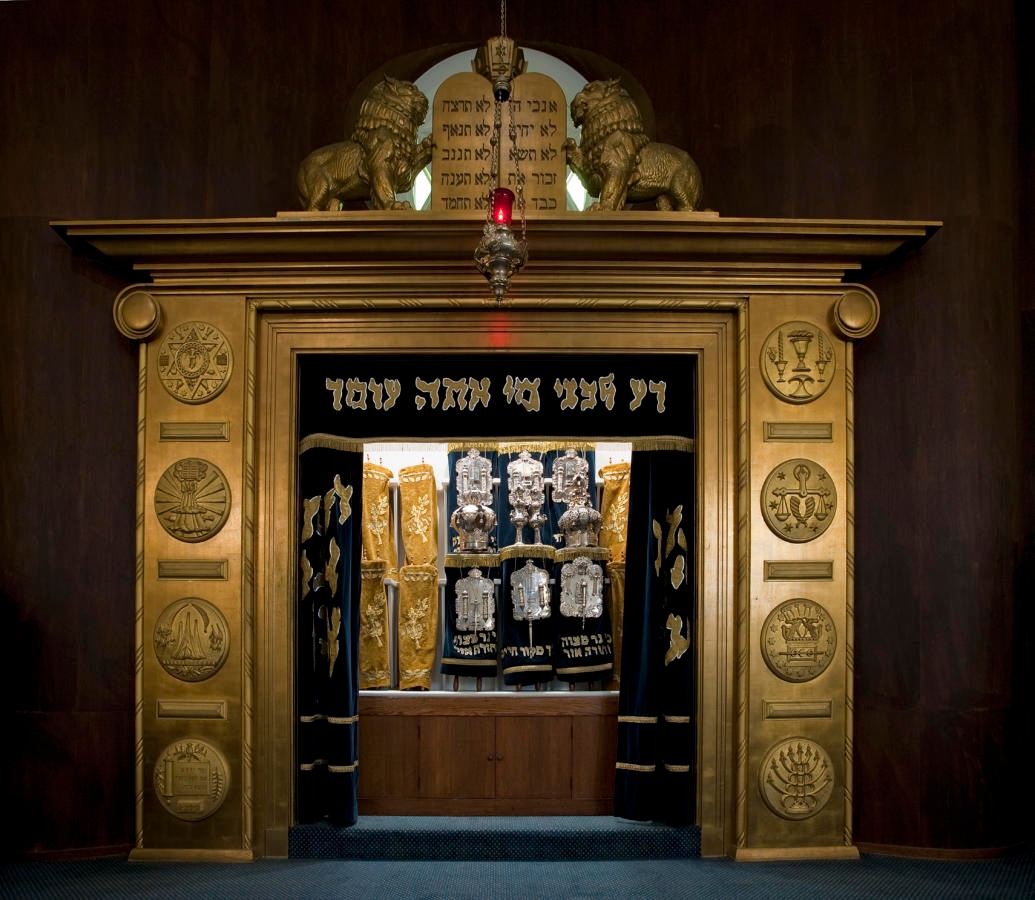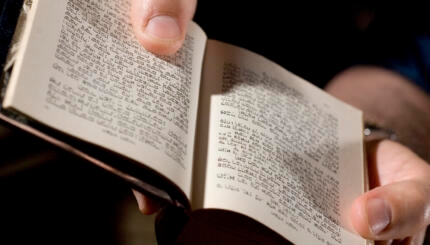“God, open my lips that my mouth may tell Your praise.” Psalm 51:17
In the Talmud, we are told that the fourth-century sage Rabbi Yochanan used to speak these words as he stood to recite the Amidah (literally “standing”) — a litany of praise, petition and gratitude that constitutes the literary heart of prayer. His practice became the norm; the verse was incorporated into the prayer book as the preface to the Amidah prayer.
Psalm 51 also begins with a preface, one that identifies it as the words of King David that he spoke in response to Nathan, the prophet who had faced him down and accused him of adultery and murder. Rabbi Yochanan, like King David, was a political leader—the head of a talmudic academy—and was known, like David, for his physical beauty and passionate sensibility.
It is likely that Rabbi Yochanan experienced prayer as nothing less than the presentation of himself before an all-seeing eye, a kind of prophetic encounter in which the sovereign self might come to recognize its capacity for cruelty and arrogance as well as its hunger to recover innocence and integrity. Yochanan knew that prayer was both gift and task, an opportunity to reconnect to divinity by telling the whole truth to his fullest capacity. And that this capacity was itself a gift, the gift of speech.
With your help, My Jewish Learning can provide endless opportunities for learning, connection and discovery.
This verse then — “God, open my lips that my mouth may tell Your praise” — functions as a kind of stage direction for the praying individual who is thereby encouraged to imagine that she stands in the presence of one who gazes into her depths, ready to hear her give word to her truth — a word that, because it has been summoned, will sound to her ears like the kol d’mama dakka (“the still small voice”) that the prophet Elijah discerned in the wilderness. I Kings 19
In her readiness to hear the voice of God, the praying person resembles a biblical prophet who has been called to receive the word of God and to speak it. Rabbi Yochanan knew quite well that rabbinic Judaism is premised on the belief that when the last of the biblical prophets died, prophecy ceased among the Jews. However he also knew, as the great 20th century scholar Rabbi Joseph Soloveitchik put it in his essay “The Lonely Man of Faith”:
“… the prayer community was born the very instant the prophetic community expired and, when the prayer community came into the spiritual world of the Jew of old, it did not supersede the prophetic community but rather perpetuated it. Prayer is the continuation of prophecy.”
By this reading, formal prayer began as a stubborn refusal on the part of the ancient rabbis to accept that the conversation between God and the Jewish people could end, that the covenant between them could go silent. When Jews gather to pray, they ruled, God is present among them as listener. And so the ancient conversation continues.
Rabbi Abraham Joshua Heschel, who wrote extensively about both prophecy and prayer, held that while prophecy ended as an epoch in Jewish history, it has continued to this day as a functioning model for the individual’s encounter with God:
“The prophet does not find God in his mind as object, but finds himself an object in God’s mind. To think of Him is to open the mind to His all-pervading, all-penetrating presence. To think of things is to have a concept within the mind, while to think of Him is like being surrounded by His thinking.”
Prayer and prophecy, by both Heschel’s and Soloveitchik’s readings, are intimately bound up in each other.
According to the great jurist and philosopher Moses Maimonides (1135-1204), Jewish prayer had originally been, like prophecy, a spontaneous, individual burden or attainment. One person prayed long and another short, but everyone faced the sanctuary and prayed at least once a day.
Maimonides explained that the ancient rabbis decided to standardize prayer in response to disastrous historical events — namely the destruction of Jerusalem and Solomon’s Temple by the Babylonian army in 587 BCE, the forced exile of Jewish leadership and the subsequent creation of a longstanding diaspora of Jews who could no longer speak fluent Hebrew. In short, liturgy was created as a religio-political response to circumstances that threatened the continued existence of the Jewish people. Prayer therefore, which had originally been a private, individual affair, became an organized communal responsibility — a structured, time-specific, scripted public event.
Consequently, this verse and the psalm to which it alludes enables us to hear Rabbi Yochanan — and through him David, and through David, God — remind us that though prayer is now mostly written in the language of “we,” it yearns to be experienced in the language of “I.” That because of the Jewish commitment to live in the material world, to work for its socio-political mending and even its redemption, the spirit is often neglected.
For this reason, the sages have long needed to remind us, as does Rabbi Shimon, in the third century text Pirkei Avot: “When you pray do not make your prayer something automatic, but rather a plea for compassion in the presence of God.” And we ourselves do well to remember figures like Rabbi Yochanan, who is often heard in the pages Talmud wistfully yearning that a time might yet come when a person could just pray all day long.



